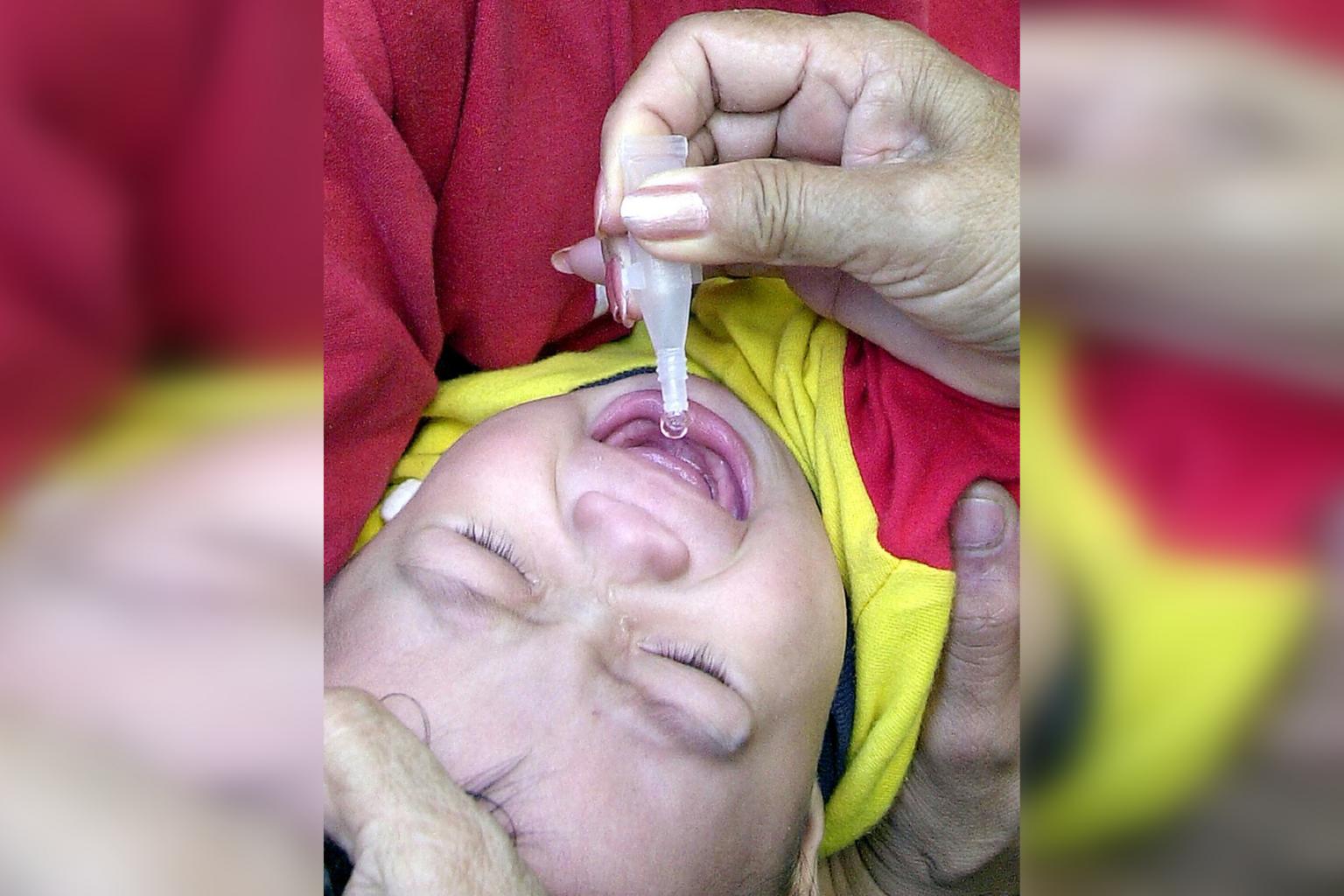Polio, a menace eradicated in the Philippines 19 years ago, resurfaces
Sign up now: Get insights on Asia's fast-moving developments

In a photo taken on Feb 2, 2002, a health worker administers oral polio vaccines to an infant in Manila as part of a nationwide campaign.
PHOTO: AFP
MANILA - Polio has resurfaced in the Philippines, 19 years after the country was declared free of the paralysing disease, in what officials say has been the result of public aversion to vaccines.
Health officials on Thursday (Sept 19) reported the country's first polio case since 2000 - a three-year-old girl in Lanao del Sur province, 1,000km south of the capital Manila.
They are also trying to confirm a case of acute flaccid paralysis - a sudden neurologic disease that causes weakness or paralysis in any part of the body - which could have been due to polio.
The poliovirus was also discovered in sewage samples taken in Manila and Davao City, home turf of President Rodrigo Duterte.
Poliomyelitis, or polio, attacks the nervous system and can cause irreversible paralysis within hours of infection. Children under five are the most vulnerable.
While there is no cure for polio, there is a vaccine which prevents it.
But many households here, especially in poor districts, have been shunning vaccines after a failed programme to inoculate a million school-age children with the world's first dengue vaccine in 2016.
That clinical trial misfired, after the pharmaceutical firm behind the vaccine disclosed that the vaccine could provoke a much more severe form of dengue.
That, and the government's "highly politicised" response, led public confidence in vaccines to plunge to 32 per cent last year from 93 per cent in 2015, according to the London School of Hygiene and Tropical Medicine.
The health department reported that vaccine coverage rate slid to 40 per cent last year from 70 per cent a year earlier. Polio vaccine coverage, in particular, fell to 66 per cent from the required 95 per cent.
The government in August declared a "national dengue epidemic", as the death toll from the deadly mosquito-borne disease topped 1,000, with nearly half of them children five to nine years old.
There were, meanwhile, over 45,000 cases of measles recorded over a year from July last year.
In a news conference on Thursday, Health Secretary Francisco Duque urged parents to have their children inoculated.
"We repeat our call to parents and caregivers: Let us prioritise the complete vaccination of our children, so they remain safe from vaccine-preventable diseases like polio," he said.
Unicef Philippine representative Oyun Dendevnorov said the resurgence of polio in the Philippines is "deeply disconcerting".
Only three other countries are not polio-free: Pakistan, Afghanistan and Nigeria.
"The outbreak calls for urgent action to protect more children from being infected," she said.
Public aversion to vaccines has caused massive outbreaks of dengue and measles, and now a polio epidemic, in the Philippines.
Dr Duque said the health department would, among other measures, be rolling out "synchronised polio vaccinations" for children under five in high-risk areas next month.
"We need to make sure that the polio vaccine coverage should be at 95 per cent to ensure that this will not create problems to our children... Complete vaccination is the best way to prevent it," he said.
The Philippines is also getting technical advice, field monitoring and risk information from the Global Polio Eradication Initiative, set up with help from the Bill & Melinda Gates Foundation.


